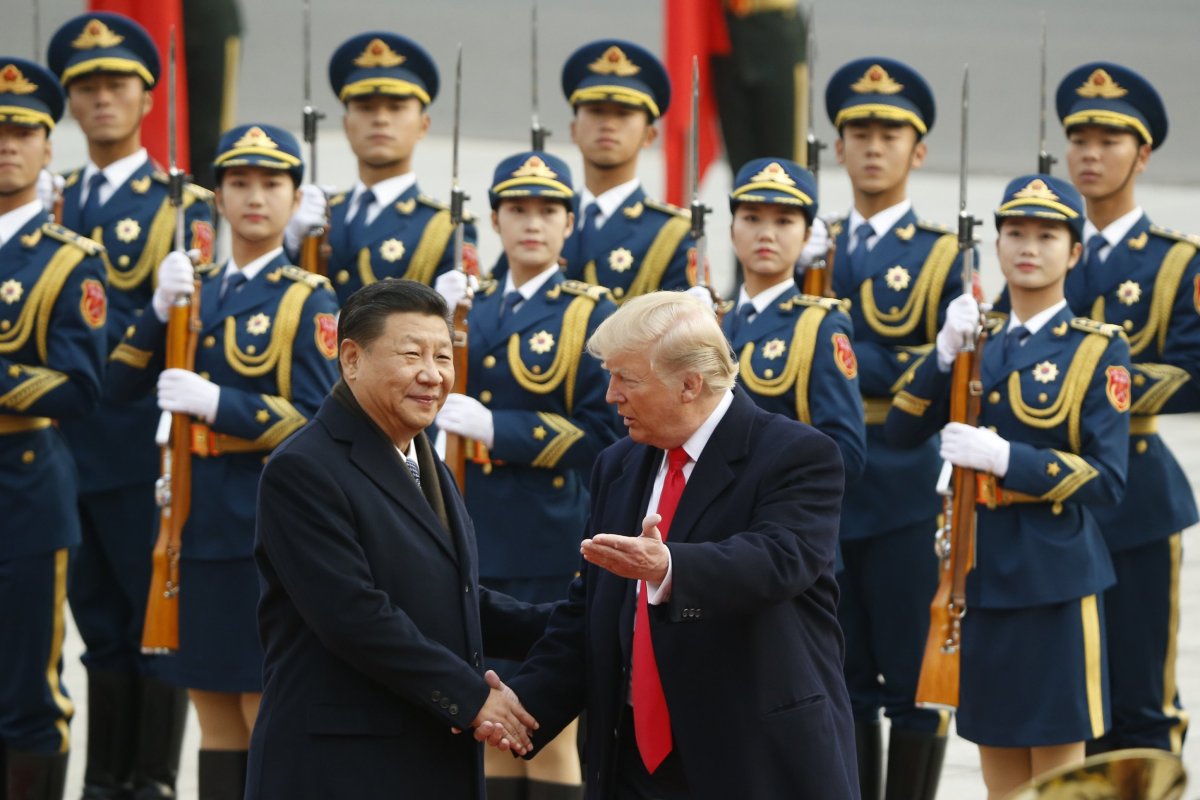Chinese President Xi Jinping has told Communist Party officials to be wary of threats to the regime's political and ideological security as Beijing responds to concerning new economic data.
Speaking at a study session for top party leaders on Monday, Xi—effectively made president for life in 2018—also said the party must guard against the influence of the internet on young people to ensure the survival of "socialism with Chinese characteristics," the state-backed Xinhua news agency reported.
Read More: China grants Ivanka Trump five trademarks as White House continues trade negotiations with Beijing
His appearance at the event coincided with the release of worrying economic data for China, which showed its 2018 economic growth was the weakest in almost 30 years. Performance was driven down by sluggish domestic spending and investment, while the economy was forced to grapple with a raft of new tariffs from President Donald Trump's trade war.
The Communist Party has enforced one-party rule in China since 1949. Leaders have largely been able to offset any demands for greater personal and political freedom by using the country's impressive economic performance. China, the world's most populous nation, has become its second-strongest economy.
But slowing economic growth could undermine this balance. Increasing unemployment and falling living standards present a threat to the country's social cohesion, and thus the ruling party, The Guardian suggested.
Xi said the party's focus should be on young people and the ideological battles taking place online. "Now, the main front of the ideological struggle is on the internet, and the main audience of the internet is young people," he said. "Many domestic and foreign forces are trying to develop supporters of their values and even to cultivate opponents of the government."
The president also announced a raft of new measures that will help stabilize the country's economy. Xi said party officials would be "highly vigilant" against "black swans" (unpredictable negative economic events) and "grey rhinoceroses" (known risks ignored until it's too late to avoid them).
According to Reuters, Xi said the government would help small businesses with financing issues and support companies if required to protect jobs. He also indicated that China would work to safeguard its interests and workers overseas amid what he called a "turbulent international situation."
But companies with a lot of debt, which Xi called "zombie firms," would be dissolved and their workers resettled. The government will also take steps to stabilize the country's real estate market and ensure a thorough evaluation of financial markets before enacting any policies that may impact them.
Xi warned that technological advances also pose a threat to the party and society. He vowed to introduce new legislation regarding artificial intelligence, gene editing, autonomous vehicles and drones to properly manage the impact of such fields.
Li Datong, a former journalist and critic of Xi, told The Guardian, "There is no political security. There is only regime security." He suggested regime officials "see the risks of rebellion. As the economy becomes worse, people from all walks of the society can become opponents."
China's public security minister, Zhao Kezhi, said last week authorities must be on the lookout for any "color revolutions"—i.e., mass political pro-democracy movements. He said police must "stress the prevention and resistance of color revolutions and firmly fight to protect China's political security."

Uncommon Knowledge
Newsweek is committed to challenging conventional wisdom and finding connections in the search for common ground.
Newsweek is committed to challenging conventional wisdom and finding connections in the search for common ground.
About the writer
David Brennan is Newsweek's Diplomatic Correspondent covering world politics and conflicts from London with a focus on NATO, the European ... Read more
To read how Newsweek uses AI as a newsroom tool, Click here.








